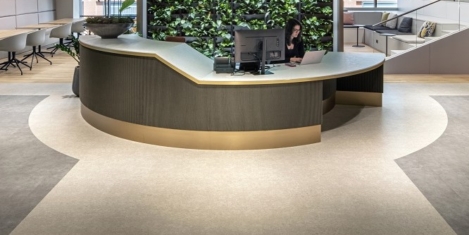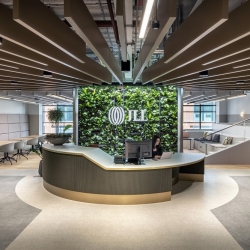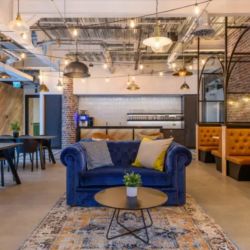November 28, 2023
Can smart glasses be the key to unlocking productivity in the workplace?
 Technology is the foremost resource for shaping the world—and in the modern workplace, it’s crucial for keeping brands competitive in an increasingly fast-paced business environment. Our article “Why new technologies still make employees happier, healthier, and more efficient” explains that technology must meet increasingly agile strategies like remote work. In these cases, it can help optimise manpower and productivity. As a result, 70 percent of firms believe new technologies improve business resilience. One of the emerging tools showing immense promise for improving productivity is smart glasses. More →
Technology is the foremost resource for shaping the world—and in the modern workplace, it’s crucial for keeping brands competitive in an increasingly fast-paced business environment. Our article “Why new technologies still make employees happier, healthier, and more efficient” explains that technology must meet increasingly agile strategies like remote work. In these cases, it can help optimise manpower and productivity. As a result, 70 percent of firms believe new technologies improve business resilience. One of the emerging tools showing immense promise for improving productivity is smart glasses. More →












 According to
According to 
 Office workers now spend more time in the office, with the average creeping up to three and a half days per week compared to
Office workers now spend more time in the office, with the average creeping up to three and a half days per week compared to 




 For many people, a large portion of the day is spent at the workplace. In fact, the average person will spend 90,000 hours at work over a lifetime. The Covid-19 pandemic saw the typical ‘workplace’ setting change for many people, after businesses around the globe were forced to adjust to a ‘work-from-home’ model. Now, three years later, we are starting to see more employees return to the office, with large corporations including JPMorgan, Chase, Apple and Google all announcing plans to bring their workers back to base.
For many people, a large portion of the day is spent at the workplace. In fact, the average person will spend 90,000 hours at work over a lifetime. The Covid-19 pandemic saw the typical ‘workplace’ setting change for many people, after businesses around the globe were forced to adjust to a ‘work-from-home’ model. Now, three years later, we are starting to see more employees return to the office, with large corporations including JPMorgan, Chase, Apple and Google all announcing plans to bring their workers back to base. 


 Nothing beats in-person meetings, but tech is vital for hybrid working trust and equality. That is the main conclusion of a new report from
Nothing beats in-person meetings, but tech is vital for hybrid working trust and equality. That is the main conclusion of a new report from 









November 29, 2023
Creating the epicentre: unlocking the untold benefits of next-generation office spaces
by Nathan Thomas • Comment, Flexible working, Property, Technology